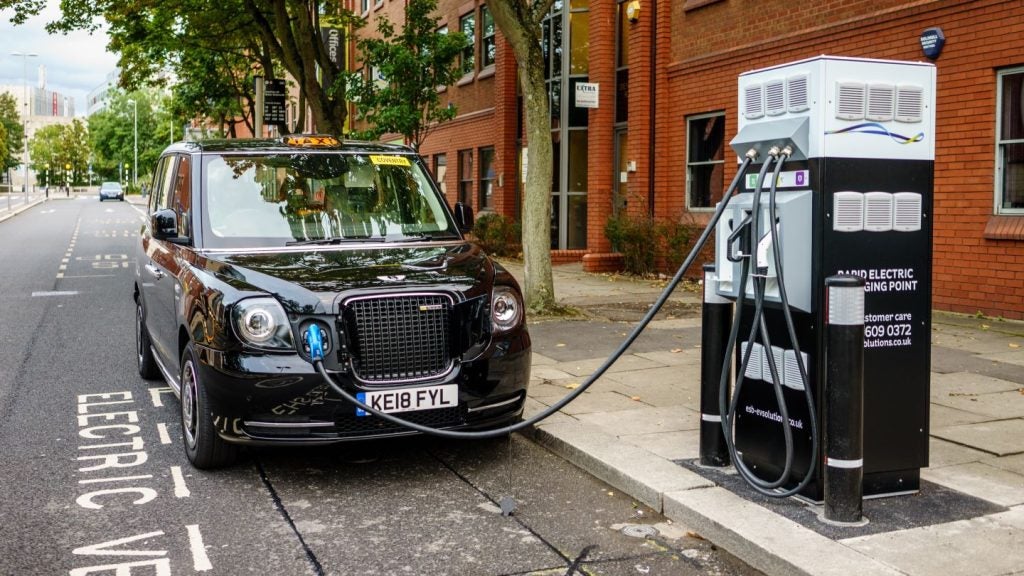
Sotiris Kanaris speaks to European lessors about the state of the market and how full-service options are driving the marketplace.
The debt crisis has been casting its shadow over a number of European countries over the past five years and has inevitably affected the continent’s fleet lease market.
Fleet leasing especially in some southern European countries became less popular, as companies struggled to access funding. As a result, a number of international and local players decide to exit from various markets, influencing the competition at national level.
Nick Salkeld, chief commercial officer at LeasePlan, said: "The crisis has meant there has been more consolidation, as a number of banks have exited the market and divested their leasing portfolios. For example we have acquired the leasing portfolio of Banco Bilboa Vizcaya Argentaria (BBVA) in Italy. There’s also a reduced number of local leasing players, particularly in crisis years when funding was a challenge."
Despite changes in competition, the majority of European markets started to show signs of recovery from the reduced lease volumes experienced over the past few years.
Leaseurope’s latest preliminary survey of the market found that the vehicle segment of the industry, which includes passenger cars and commercial vehicles, witnessed the highest year-on-year growth in 2014 compared to other divisions. New leasing volumes across Europe in this segment increased by 12.4% in relation to 2013.
How well do you really know your competitors?
Access the most comprehensive Company Profiles on the market, powered by GlobalData. Save hours of research. Gain competitive edge.

Thank you!
Your download email will arrive shortly
Not ready to buy yet? Download a free sample
We are confident about the unique quality of our Company Profiles. However, we want you to make the most beneficial decision for your business, so we offer a free sample that you can download by submitting the below form
By GlobalDataSalkeld believes that growth at a pan-European level will continue in 2015, despite expectations that the market will shrink in a number of countries.
"In the main we’re seeing the leasing markets of most of the European countries improving," said Salkeld. "We saw that last year, and we’re seeing that this year with year-to-date growth figures across Europe being very strong. On the other hand, it’s expected that the overall leasing markets in the Netherlands, Norway, Portugal, Finland and some other countries will reduce slightly this year."
The industry professionals Leasing Life spoke to, attributed a significant portion of the market’s growth to small and medium-sized enterprises.
According to LeasePlan, while larger customers have been cutting their fleet, fleet leasing to small businesses accelerated.
Gerry Keaney chief executive at the British Vehicle Rental and Leasing Association (BVRLA) said the importance of SMEs to the sector has increased significantly, catching the attention of lessors.
"The surge in demand from SME customers has been reflected by the increased focus major funders are placing on their leasing broker channels," he said.
The rise of new trends in fleet leasing
The international fleet lease firms found that companies and drivers have been increasingly looking for more flexible leasing solutions. As a result some companies have shifted their focus onto mobility solutions, like car sharing, launching new business services in order to respond to the changing customer behaviour.
"Car sharing, flexible leasing options and short-term rental options are elements that enable us to meet the requirements of someone that wants a four-year contract, down to someone that wants a car for four hours," said Salkeld.
Differences in infrastructure and drivers’ behaviour between European countries make certain mobility solutions more appropriate for some markets than overs.
Doug Hyett, director at Lex Autolease, says: "I think our European customers are more interested in mobility solutions than just pure leasing. So that’s combining your travel pass, your car, maybe interfacing with public transport.
"In the Netherlands it works right across the country, so it’s completely integrated. I think other countries may pick up on that. I just don’t see it happening in the UK which is too fragmented. Maybe it could work in London because it has the infrastructure, with the ability to use contact payment and you can lease a car or car share."
Hyett believes the trend towards car sharing will continue in the near future and that keyless driving will emerge. He feels that keyless driving will be essential in reducing company costs, as it will eradicate the expenses for replacing lost keys.
"Keyless driving for us will be an absolute step forward. Sometimes you get a vehicle back with one set of keys; a key is hugely expensive to recover. So if customers are able to access and drive the vehicle using the technology they are carrying with them all the time, it would be a big benefit to our cost structure. Once you get into the car the ignition won’t start unless the technology that allows you into the car verifies who you are and that you’ve booked the vehicle," he said.
The combination of new technology and connectivity has altered people’s expectations of business mobility. Mobile applications have become integral in the fleet leasing business.
Carsten Kwirandt, head of marketing and business development at Alphabet, says: "Business mobility today is much more than going from point A to B. Today’s users expect door-to-door mobility with the latest technology, connectivity and intermodal mobility. Flexibility is also a must as apps let us navigate and take real-time decisions. With people seeking better efficiency, the demand for quick, comfortable mobility options that are as safe as they are dependable is on the rise."
In the European market a number of mobile applications have been launched, enabling drivers to obtain real-time information on car performance and maintenance. In addition, drivers can now book services for their vehicles through these applications.
Another recent technological development introduced into the fleet lease market is telematics. Through installing telematics devises, drivers, companies and lessors are able to obtain a range of real-time data and use them more efficiently. The devises also help track vehicles in cases of theft.
Salkeld says: "It helps us improve cost control and insurance, in order to have a faster recovery time in terms of some of the cars that are stolen. In Italy at one of our clients, we have a 100% recovery rate within two days because of the installation of these devises. Telematics enable us to be able to reduce costs to our clients because we have more real-time data."
He revealed that LeasePlan aims to install telematics to all its vehicles by the beginning of 2016.
Regulation and taxation
There are different regulatory focuses and pressures among European countries, which affect individual fleet lease markets. Taxes on CO2 emissions and diesel emissions are higher in certain markets, influencing lessor’s market propositions.
Salkeld is optimistic about the future of the European leasing market, despite regulatory pressures.
"We’re optimistic about the future; we think governments are very much aware of the fact that a positive leasing market has a direct impact on the economy," he says.
On the other hand, the BVRLA believes the increased taxation imposed by the UK Government could have an adverse effect on the fleet lease market.
Keaney says: "The Government’s motoring tax regime continues to incentivise vehicles with low CO2 emissions, but it’s clear that it is looking at the company car sector to generate more tax income.In the 2015 Budget, the Chancellor announced that company car tax would rise by 2% for cars emitting more than 75g/km CO2 to a maximum of 37% until 2018-19, after which there will be a rise of 3% for 2019-20. In 2017-18 there will be a 4% differential between the 0-50 and 51-75g/km bands and between the 51-75 and 76-94 g/km bands. In 2018-19 this differential will reduce to 3%.
"This is likely to cost the industry an extra £340m in 2019/20, according to government estimates, which is a 171% tax rise compared to what the industry was expecting from the 2014 Budget.
"It effectively accelerates the rate of increase in company car tax that thousands of motorists will pay, at the same time as putting the brakes on the take-up of ultra low-emission cars."
Lease accounting
Apart from taxation, industry professionals believe that the forthcoming new lease accounting rules will affect the global fleet lease industry.
The rules created by the Financial Accounting Standards Board (FASB) and the International Accounting Standards Board (IASB), are expected to be finalised in 2018.
The IASB has stated: "The existing accounting models for leases require entities to classify their leases as either finance leases or operating leases. A lessee is not required to recognise lease assets or liabilities for operating leases. Those models have been criticised for failing to meet the needs of investors and analysts because they do not always provide a faithful representation of leasing transactions. In particular, they omit important information about significant assets and liabilities arising from operating leases."
The new rules will require companies to record leases, including existing leases, on their balance sheets. They will cause alterations to corporate financial statements. Proactive companies are beginning to assess the impact of the new rules and fleet lessors are already informing customers about the changes.
Under the new rules, all leases with a maximum term longer than 12 months will be capitalised on the balance sheet.
For companies that seek to lease vehicles, contract hire will be on the balance sheet. However Lex Autolease’s Hyett suggests that he does not expect changes in the demand for contract hire.
"One of the main reasons people chose contract hire many years ago was because it was off balance sheet. But this is not necessarily why people take contract hire now. I think it will just eliminate the difference between contract hire and other funding routes like finance, lease and contract purchase, in terms of why choose that rather than the others?" he said.
He expects that as a consequence of the new rules, there will be an increase in demand for employee car ownership (ECO) schemes.
"I think people will take ECO funding. With benefit in kind taxation rising and the fact that it is off balance sheet, I think ECO will be back," says Hyett.
Apart from increased regulation and upcoming industry rules, the European fleet lease industry could be affected by political uncertainty and residual values.
Industry professionals acknowledge that the political uncertainly in the EU, which is currently affecting the market, could continue to do so in the future.
Commenting on potential challenges facing UK fleet lease companies, Hyett cites pressures on residual values.
"I think a key challenge faced by lessors is the cyclical nature of residual values," he says. "We haven’t had a dip for many years; it’s lurking in the background. I think the other issue within the UK is the massive oversupply of new vehicles which is driving down the residual value position of existing vehicles. Big European manufacturers are discounting very heavily. As a result new vehicle prices are getting very close to a second-hand vehicle price.
I think there’s a huge pressure on residual values for second-hand vehicles and that could lead to a crash. I’m not predicting one but that’s at the back of everybody’s mind," Hyett warns.
Despite the various challenges, fleet lease companies are optimistic about the future of the market for the next few years.
"In all European countries, finance lease is expected to outperform the total car market in the next few years. Operational lease is expected to hit 6.5 million by 2018," said Kwirandt.
Salkeld says there are growth opportunities for fleet lease companies in markets like Romania and Ireland. He also highlighted that the fleet lease market could expand in mature markets like France and Italy.
"In Italy, for example, there’s less than 10% penetration of operating leasing into the total company car market. In what is a mature economy like Italy, there’s still significant potential to increase our operating leasing business there," said Salkeld.
In terms of competition, another major player in the European market – GE Fleet Services – is exiting the market. Hyett expects a further consolidation to take place in the marketplace, but believes that it’s robust enough to cover for any exits.
The fleet lease companies will need to invest further in innovative new ideas and products in the next few years, as the demand for business mobility is expected to change further.
"In the next few years, the importance of innovation, technology and connectivity will increase," says Kwirandt. "At the same time, the gap between business and private mobility needs will diminish."







